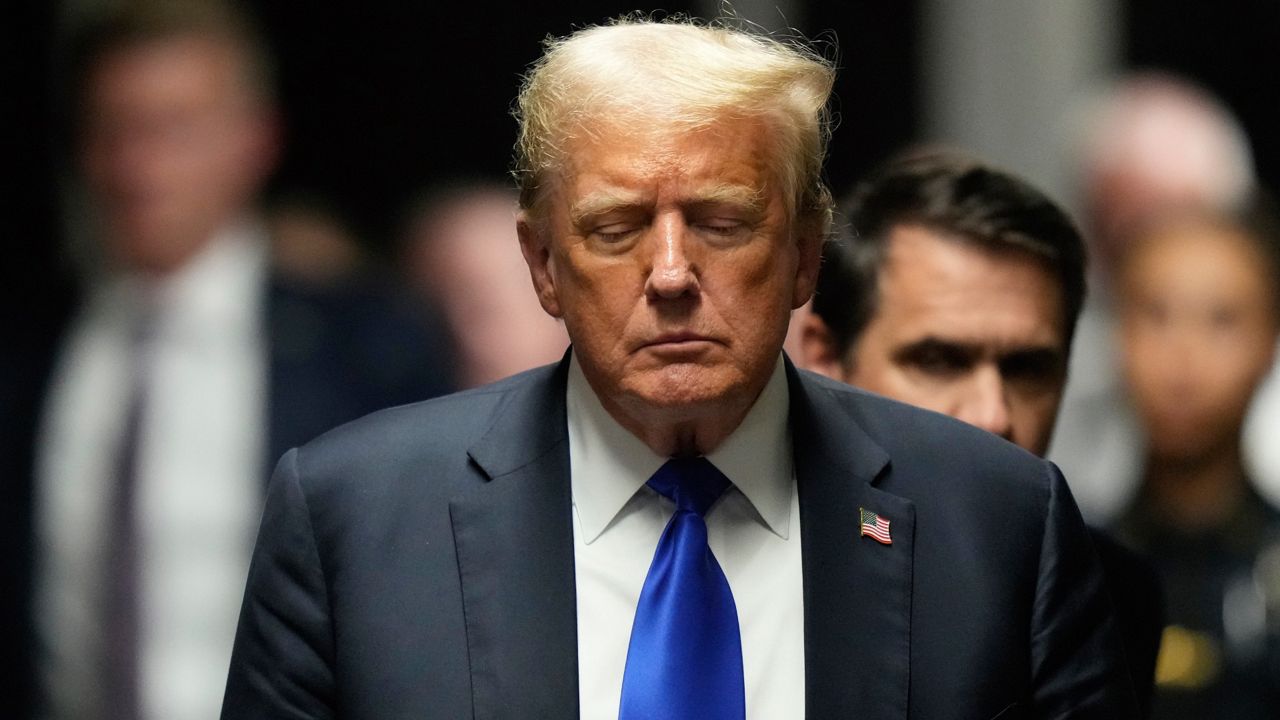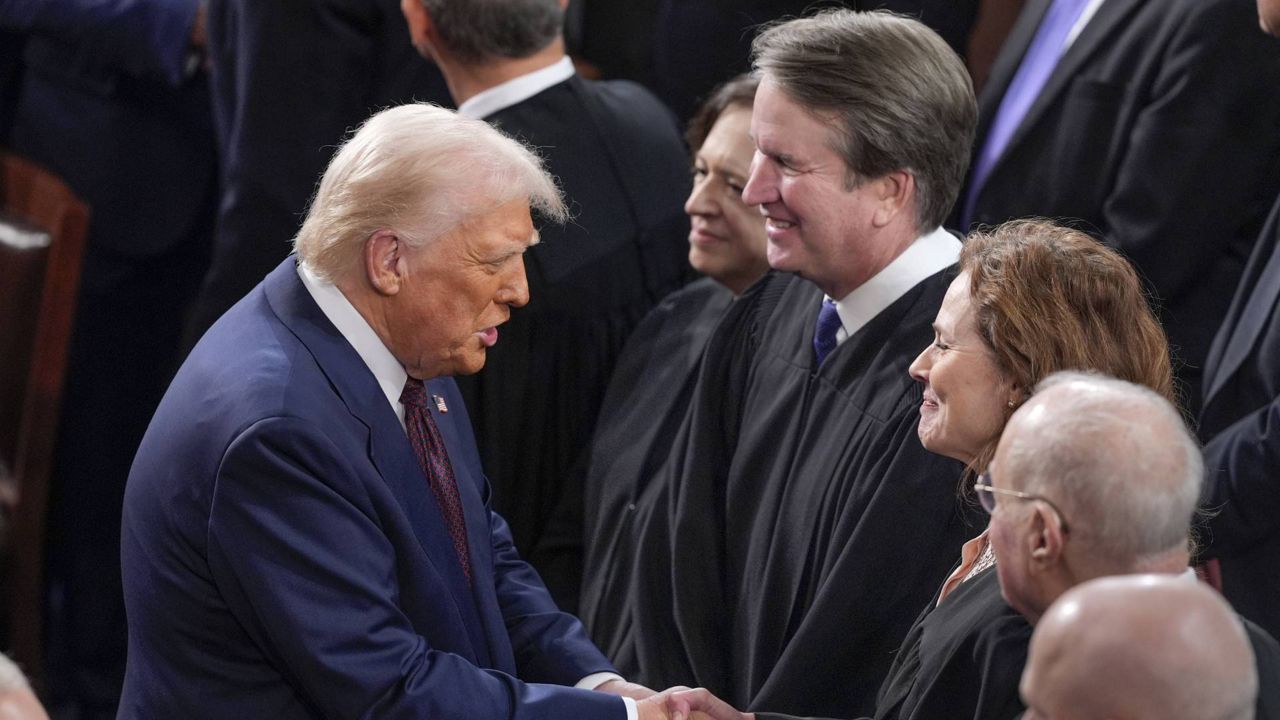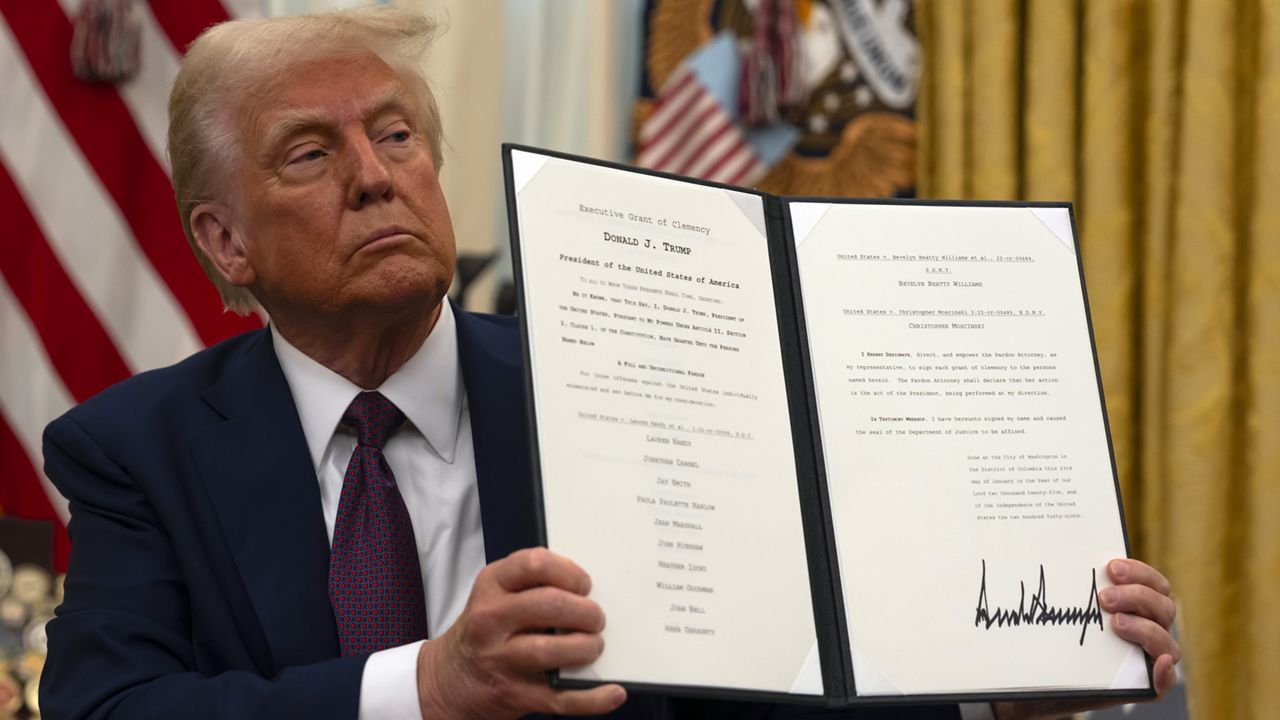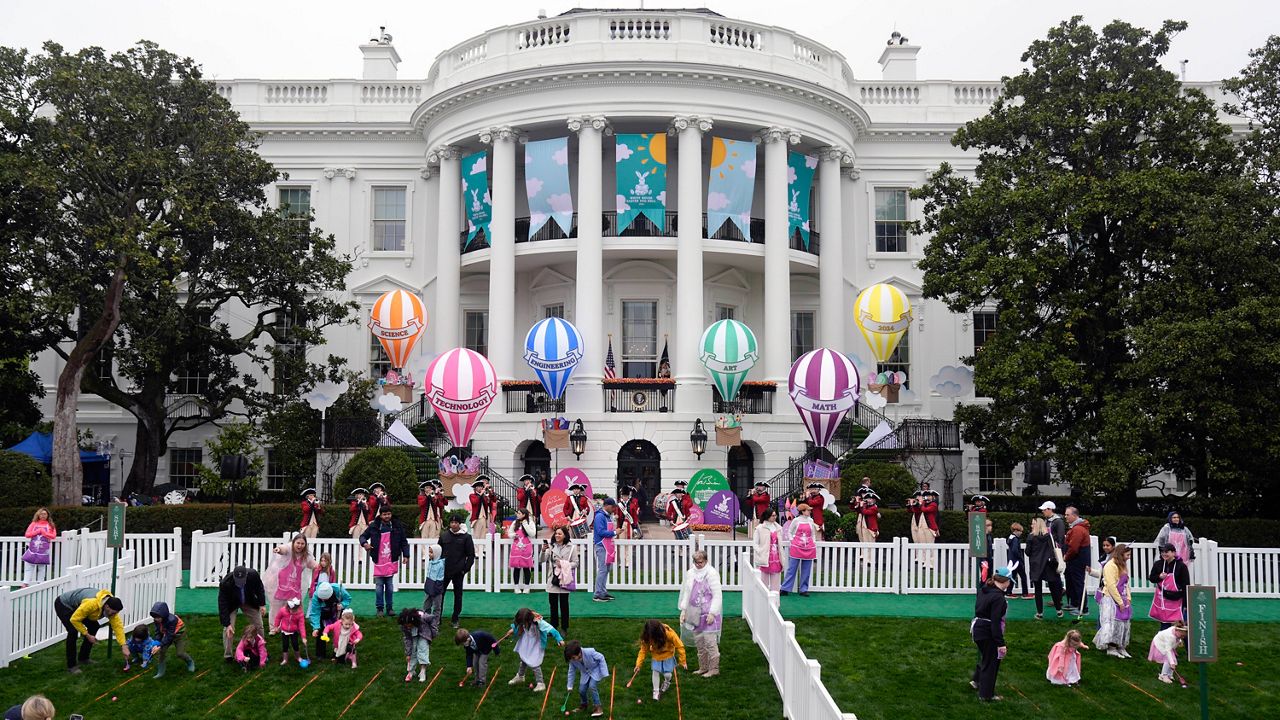A little more than half the country thinks former President Donald Trump shouldn’t return to the White House next year after a jury in New York found him guilty of 34 felonies last week, surveys conducted after the verdict show.
And, in a highly partisan country, a majority of the voters that may end up deciding November’s election — political independents — say they will not vote for the first ex-president to be convicted of a felony in the fall.
But public polling released in recent days also shows he is running about even with his chief rival President Joe Biden, whose approval rating remains near all-time lows.
What You Need To Know
- A little more than half the country thinks former President Donald Trump shouldn’t return to the White House next year after a jury in New York found him guilty of 34 felonies last week, polls conducted after the verdict show
- But public polling released in recent days also shows he is running about even with his chief rival President Joe Biden, whose approval rating remains near all-time lows
- A majority of independents say they will not vote for Trump in the fall
- A Gallup poll published in January found 43% of U.S. adults identify as politically independent of either major party, an all-time high since Gallup began tracking political identification in 1988
Biden has a slim lead of one or two percentage points in polls released since last Thursday’s verdict, but that’s within the surveys' margins of error. According to polling aggregator FiveThirtyEight, Trump is leading in the polls by around a single point on average, hovering just under 41% to Biden’s nearly 40%. Independent presidential candidate Robert F. Kennedy Jr., who is working on getting on the ballot in all 50 states, is sitting around 10% on average.
“Donald Trump and Joe Biden remain locked in a close race for the 2024 presidential election,” Ipsos pollsters Chris Jackson and Annaleise Azevedo wrote in a release about a poll they did with Reuters after the verdict. “Among registered voters, Donald Trump (39%) and Joe Biden (41%) are statistically tied if the election for president were held today.”
The Reuters/Ipsos poll of more than 2,100 registered voters put in the field immediately after last Thursday’s verdict found 54% said they would not vote for Trump if he had been convicted of a felony crime by a jury of his peers. Just 34% said they would. Those numbers were even worse for Trump among independents, 58% of whom said they would not vote for him and 28% said they would, with 15% either undecided or opting not to answer the question.
An ABC News/Ipsos poll of 781 U.S. adults conducted on Friday and Saturday found 50% of Americans think the guilty verdict on 34 counts of falsifying business records was correct and 49% think he should end his campaign because of the conviction. A Morning Consult poll of 2,200 registered voters conducted Friday found similar totals, with 51% agreeing that the former president should end his campaign, including 49% of independents and 15% of Republicans.
Another poll by CBS News and YouGov found 57% of Americans thought the jury reached the right verdict, including 56% of independents, and 51% of all those polled no longer thought he was fit to be president. Just 40% of the roughly 1,000 Americans surveyed told the CBS News/YouGov pollsters they considered Trump fit for the presidency post-conviction. Half of independents in that poll said they did not consider him fit, with just 39% saying he was.
Independent voters — who identify with neither the Republican Party nor the Democratic Party, but have views ranging across the political spectrum — voted for Biden over Trump by around nine percentage points in 2020, according to Pew Research Center. A Gallup poll published in January found 43% of U.S. adults identify as politically independent of either major party, an all-time high since Gallup began tracking political identification in 1988.
“A particular segment of voters is deeply uncomfortable with electing a convicted felon as President of the United States. That group isn’t huge, but it is large enough to matter in a very close election,” former Obama White House communications director Dan Pfieffer wrote in his newsletter last week. “A conviction is not going to overtake inflation or abortion for most voters, but it does fit nicely into the story Democrats want to tell.”
In a memo shared with the public, Trump campaign pollster Tony Fabrizio argued that the impact of the guilty verdict was “baked in the cake” of voters’ minds and that Trump continued to lead in their internal polling of seven key swing states.
“Democrats and their media allies should put the corks back in their champagne bottles,” Fabrizio wrote, claiming to see “no discernible impact” in internal polls conducted Thursday night immediately following the verdict.
Public polling suggests there may be something to the fact that many voters had already formed their opinions of Trump and his criminality prior to the verdict. The Reuters/Ipsos poll actually found fewer registered voters said they wouldn’t vote for Trump if convicted after the trial (54%) than had said so prior to it beginning in April (60%) — though their data suggests the drop “is entirely driven by Republicans,” as their pollsters wrote. Republicans polled went from just 49% saying they would vote for Trump if convicted in April to 66% post-conviction. Still, even 14% of Republicans told pollsters they wouldn’t vote for Trump after the guilty verdict, with one-in-five (20%) saying they weren’t sure.
Similarly, the CBS News/YouGov poll found virtually identical results pre- and post-conviction when surveying the same group about their view of Trump’s guilt.
For their part, Trump and his team are playing the conviction on 34 felony counts as a political win. His campaign claimed in a statement on Monday to have raised $141 million across multiple committees in May, including $53 million online in the 24 hours after “Crooked Joe and his New York henchmen secured their rigged verdict.” A jury of 12 people selected by both Trump’s lawyers and the prosecution arrived at the guilty after two days of deliberation and around six weeks of testimony and arguments.
Trump pleaded not guilty, maintains his innocence and plans to appeal on multiple grounds, according to his attorneys. Throughout the trial and after his conviction, Trump and his allies have complained the judge in the case was biased against him and witnesses called by the prosectuion lied under oath.
“The good news is that I think we've set a record beyond all records for fundraising. That's like a poll,” Trump said in an interview with Fox News taped on Saturday, later adding “the poll numbers have gone up substantially. I don't know if that's going to remain that way.”








